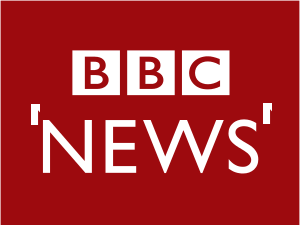12.07.15
Did the EPO Spike a BBC Story Regarding Discriminatory Practices, Legal Bullying of Bloggers, and/or Microsoft Bias?

Summary: The BBC had an article critical of the EPO, but it was never published and the reporter went silent quite so suddenly and mysteriously
THE management of the EPO has been getting away with a lot of malicious activities. Almost nobody stepped down, except the spokesperson apparently (that was last year). There is brain drain among patent examiners; there can’t be brain drain in management because one must suppose that there are brains in the management to begin with (not just a bunch of people with glorified business degrees).
“We now cautiously suspect self-censorship, maybe as part of the EPO’s media manipulation or BBC editorial policy (remember that Bill Gates repeatedly paid huge amounts of money to the BBC and this article directly implicates Microsoft).”For almost a week now we have been waiting for the BBC to publish an article, towards which we provided comments/input/documents (my lawyer did too). Based on what I was told, it was nearly ready for publication and a lot of work had been put into/invested behind it. We now cautiously suspect self-censorship, maybe as part of the EPO's media manipulation or BBC editorial policy (remember that Bill Gates repeatedly paid huge amounts of money to the BBC and this article directly implicates Microsoft).
We already have a leaked document about nearly $1,000,000 spent in just one year by a US company (contracted by the EPO) for EPO media presence, whatever that means.
“One hypothesis we have is that the BBC approached the EPO for comment and the EPO’s media strategy worked (a campaign to keep the media quiet and never critical of the EPO).”For no apparent reason, the reporter who approached us (we never approached the BBC) is suddenly stonewalling. We just wonder if someone at the BBC has been suppressing publication of this article about the EPO. From actually approaching me (to comment on an article already in progress), the reporter/s suddenly went into a deafening silence. Several days later we wrote regarding the status of the piece (polite queries on updates) but received nothing but silence in return.
One hypothesis we have is that the BBC approached the EPO for a comment and the EPO’s media strategy worked (a campaign to keep the media quiet and never critical of the EPO). It’s also possible that the BBC approached Microsoft for comments, whereupon something major happened. An alternative hypothesis is that someone at the BBC decided to spike the piece. As we have been covering here for years (in nearly a dozen different articles), many Microsoft UK employees had defected to the BBC’s top positions (high-level management). Readers can make of it what they will…
The bizarre thing is that at about the same time (as us being approached) even a Microsoft advocacy site dared to cover (and not in a very flattering way) this scandal. It wrote: “The allegations were made by Roy Schestowitz, a software engineer in UK, based on an internal EPO email regarding patent documents submitted by Microsoft, whose screenshot he also published on his website along with a blog post last month. The email, authored by a senior manager within the EPO allegedly contains statement confirming the “highest priority” for Microsoft’s patents, while also talks about a “close cooperation project” between the EPO and Microsoft. There is also a specific reference to Microsoft’s eventual decision to “revert to KIPO (the Korean Intellectual Property Office) as their ISA (International Searching Authority) of choice “should the results not be fast enough”, which has allegedly ticked off the EPO enough for the threats.”
The BBC already had a piece about this in its pipeline. Why was it never published? Why does the BBC refuse to even talk about it? Until or unless they decide to provide answers, all we can do is speculate. The BBC, based on our extensive search, never wrote anything negative about the EPO. Shouldn’t that alone be a damning testament to the bias? █
“We have 17.1 million users of bbc.co.uk in the UK and, as far as our server logs can make out, 5 per cent of those [use Macs] and around 400 to 600 are Linux users.”
–Ashley Highfield, Microsoft and then BBC (like revolving doors)
































 Content is available under CC-BY-SA
Content is available under CC-BY-SA